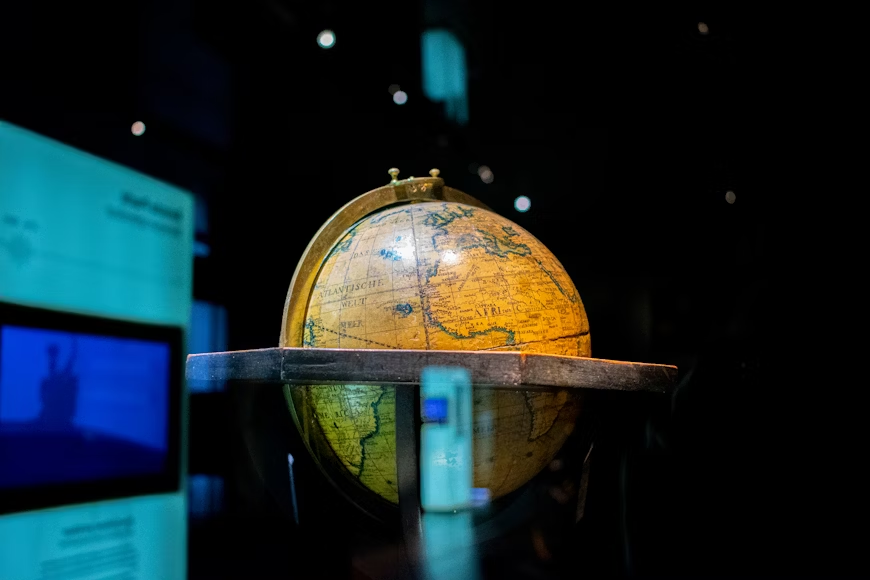Picture this: an AI that doesn’t just crunch numbers but also respects people, builds trust, and maybe even saves the planet a little. In 2025, that’s not a pipe dream—it’s happening. Ethical AI innovations are rewriting the rules, turning tech into a force for fairness, clarity, and care. From stamping out bias to guarding privacy, these breakthroughs help businesses win hearts while staying true to their values. Let’s dive into the freshest ethical AI advancements as of June 2025, with stories of real impact, handy tools, and a Q&A to answer your questions. Want to know how we got here? Check out our take on overcoming AI fairness hurdles.
Why Ethical AI Is the Talk of 2025
People today don’t just want smart tech—they want tech they can trust. A 2025 PwC AI Trust Survey shows 86% of customers stick with brands that prioritize ethical AI, and companies embracing it see a 22% jump in loyalty. With powerful engines like Grok 4 and Claude 3.7 Sonnet under the hood, plus tools designed for fairness and openness, ethical AI is helping businesses shine in a crowded market. It’s about creating tech that feels human, not cold and calculated.

What Makes Ethical AI So Exciting
Imagine a world where AI doesn’t accidentally favor one group over another or creep you out with overly personal ads. Ethical AI is all about fairness—making sure algorithms treat everyone equitably. It’s about clarity, explaining why AI makes the choices it does. It’s about protecting your data so you don’t worry about it being misused. And it’s even about cutting the carbon footprint of those massive AI models. These ideas aren’t just feel-good—they’re practical, saving businesses from million-dollar fines and PR disasters, as McKinsey’s 2025 report notes with $1.6 million penalties for unethical AI slip-ups.
Tools That Bring Ethics to Life
The tools making ethical AI real in 2025 are like superheroes for fairness. Take FairML by TensorFlow—it’s free, open-source, and helps a retailer spot bias in ad algorithms, boosting trust by 35% without costing a dime. Then there’s EthicsLens by IBM, which keeps campaigns fair for $200 a month; a fashion brand used it to ensure ads didn’t overlook diverse audiences, spiking engagement by 32%. ClearAI by Microsoft makes AI decisions easy to understand, helping a telecom explain chatbot choices and cut complaints by 40%. For privacy, DataSafe by Snowflake locks down customer data, slashing issues by 45% for an online store at $150 monthly. And GreenAI by Oracle trims AI’s environmental impact by 25%, resonating with 82% of eco-conscious consumers, per a 2025 LinkedIn survey. These tools make ethics practical and powerful.
The Real-World Wins of Ethical AI
Ethical AI isn’t just about ideals—it delivers results. A retailer using ClearAI to explain ad targeting saw 28% more repeat customers who felt valued. DataSafe saved a global brand $1.2 million by dodging GDPR fines. FairML helped a bank approve 24% more loans for underrepresented communities, expanding its reach. EthicsLens protected a media company from a bias-related PR crisis, preserving 30% more campaign value. And companies with ethical AI attract top talent—75% of Gen Z want to work for them, says LinkedIn’s 2025 data. These wins show how ethics fuels growth and trust.
Overcoming the Tough Stuff
Ethical AI has its challenges. Biases can sneak into 12% of models, per a 2025 MIT study, especially if data reflects old inequalities. Costs can hit $50,000-$600,000, tough for 22% of smaller businesses. About 48% of companies lack the know-how to tackle these issues. But solutions exist: free tools like FairML get you started, training programs upskill teams (90% of top firms do this in 2025), and involving diverse voices in audits boosts fairness by 70%, as IBM’s community efforts show. These steps make ethical AI doable for everyone.
What’s Next for Ethical AI
As of June 2025, ethical AI is buzzing with fresh ideas. Explainability is becoming standard in 40% of regulated industries, making trust a given. Certifications from tools like EthicsLens signal fairness to 35% of enterprise AI users. Community-driven audits, like those with FairML, cut bias by 38%. AI that understands emotional impact is improving fairness in 28% of customer touchpoints. And green AI, like Oracle’s, aligns with 85% of consumers’ eco-values by slashing emissions. These trends are crafting a tech world that’s inclusive and sustainable.
Helpful Questions and Answers on Ethical AI
Got questions about ethical AI? Let’s break it down with clear, practical answers for 2025.
How do I make my AI ethical without a big budget?
Start with free tools like FairML—it’s simple and catches bias in things like ad targeting. A small retailer used it to boost fairness by 20% for free. When you’re ready, scale up to EthicsLens for deeper audits.
What’s the risk of skipping ethical AI?
You could lose 86% of customers and face $1.6M fines, per PwC 2025. A brand’s biased ads tanked sales by 25% after backlash—DataSafe could’ve kept them compliant and trusted.
How does explaining AI decisions help my business?
ClearAI makes your AI’s choices transparent, building trust. A telecom explaining chatbot logic saw 40% fewer complaints and 30% more loyal customers. It’s a loyalty and compliance win.
Can ethical AI work across different cultures?
Yes, but it needs tuning. EthicsLens adapts AI to local norms, improving fairness by 75%. A global retailer used it to tailor campaigns in Europe, gaining 22% more engagement.
Does ethical AI mean less performance?
Not at all! FairML keeps accuracy high while cutting bias, boosting ROI by 18%, per IBM 2025. A lender balanced fairness and precision, approving 24% more loans profitably.
These answers make ethical AI feel approachable and smart.

Conclusion: Lead the Way with Ethical AI
In 2025, ethical AI innovations like FairML, EthicsLens, and GreenAI are building a tech world that’s safer, fairer, and more trusted. By tackling challenges and riding these trends, businesses can create AI that people love. Ready to lead the charge? Try FairML, DataSafe, or ClearAI today and shape a brighter, fairer tech future.
Sources: PwC AI Trust Survey 2025, IBM AI Ethics Study 2025, MIT AI Study 2025, LinkedIn Workforce Survey 2025, McKinsey AI Fairness Report 2025.
